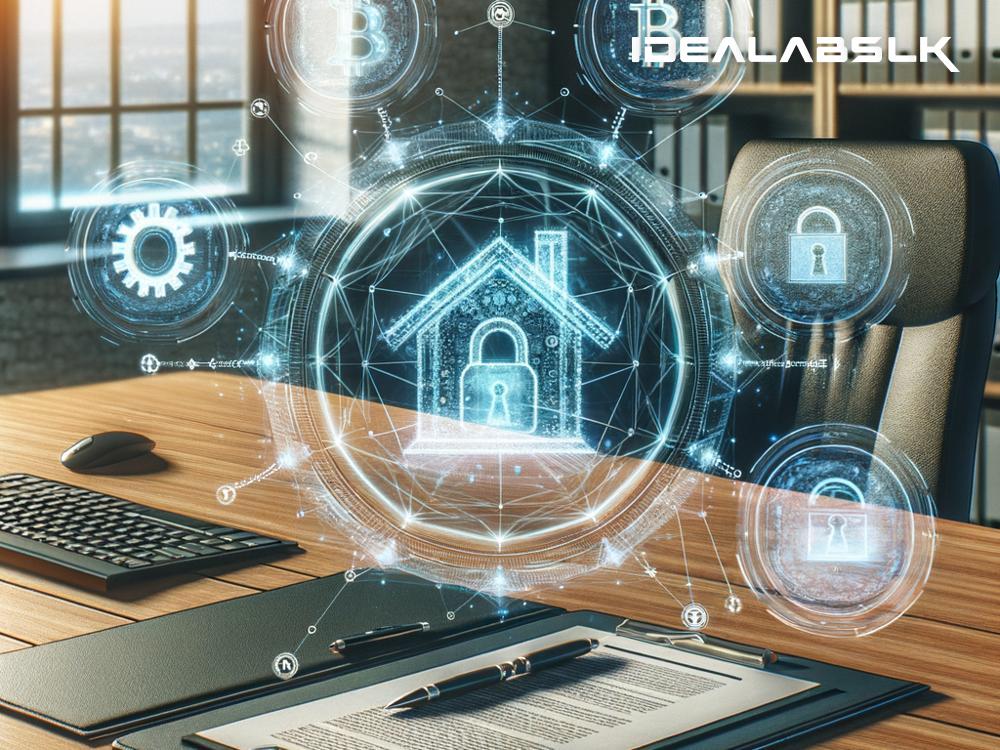Blockchain in Real Estate Regulatory Compliance: Making Complex Simpler
The world of real estate is as vast as it is complex, with layers of regulations that ensure transparency, security, and fairness in transactions. However, adhering to these regulatory compliances often becomes a mammoth task due to the manual, time-consuming processes involved. Blockchain technology, a term you've probably heard in the context of cryptocurrencies, is stepping into this intricate world, promising to significantly simplify these processes. But how does it do that? Let's dive into the subject in simple English.
What is Blockchain?
Before we delve into its role in real estate regulatory compliance, let's simplify what blockchain is. Imagine a digital ledger that is virtually impossible to tamper with. This ledger is a series of blocks linked (hence "blockchain") and accessible across a network of computers. Once information is recorded, it's nearly impossible to change without altering every block in the chain, making it extremely secure.
The Real Estate Regulatory Maze
Real estate transactions, from buying a house to leasing a commercial space, are governed by stringent regulations. These rules are in place to protect all parties involved - buyers, sellers, agents, and the government. However, the process of ensuring compliance with these rules can be incredibly cumbersome. It often involves a lot of paperwork, multiple stakeholders, and a considerable amount of time to verify the authenticity of documents and transactions.
Enter Blockchain
Now, let's explore how blockchain can simplify the regulatory compliance landscape in real estate:
-
Transparency and Trust: With transactions recorded on a blockchain, they become transparent and easily verifiable by all parties involved. This builds trust among stakeholders since the information is not only secure but also accurate and consistent across all points.
-
Streamlining Paperwork: Blockchain can store property records, contracts, and other essential documents securely online. This reduces the need for physical paperwork, making the process more efficient. Moreover, because blockchain can automate the verification of these documents against regulatory requirements, the time spent on compliance checks significantly reduces.
-
Fraud Reduction: Real estate faces a high risk of fraud, given the significant value of transactions. Blockchain's inherent security features make it nearly impossible for fraudulent activities to occur. For instance, forging a property deed becomes a thing of the past because each deed would have a digital record on the blockchain that is verifiable and immutable.
-
Smart Contracts: These are self-executing contracts with the terms of the agreement directly written into lines of code. In real estate, smart contracts can automate several compliance-related processes, such as releasing funds only when all regulatory conditions are met. This not only speeds up transactions but also ensures that all parties adhere to the agreed regulatory standards.
-
Efficient Record Keeping and Auditing: Since every transaction on a blockchain is recorded and time-stamped, auditing becomes more straightforward. Regulatory bodies can easily verify the compliance of real estate transactions without the need to sift through mountains of paperwork.
-
Global Standards: The global nature of blockchain technology can help unify real estate regulatory compliance across different jurisdictions. This is particularly beneficial for international transactions, where differing regulations can complicate the process.
The Road Ahead
While the potential of blockchain in real estate regulatory compliance is vast, the journey towards widespread adoption is gradual. Implementing blockchain technology requires significant changes in current systems, legal frameworks, and stakeholder attitudes. However, the benefits it offers in making regulatory compliance more efficient, secure, and transparent are undeniable.
In conclusion, the integration of blockchain into real estate regulatory compliance processes is not just about technology. It's about creating a more trustworthy, efficient, and accessible real estate market. As stakeholders in the real estate sector gradually embrace blockchain, we can anticipate a future where buying or leasing property is not only safer and faster but also complies seamlessly with regulations, making the complex saga of real estate transactions a lot simpler for everyone involved.

